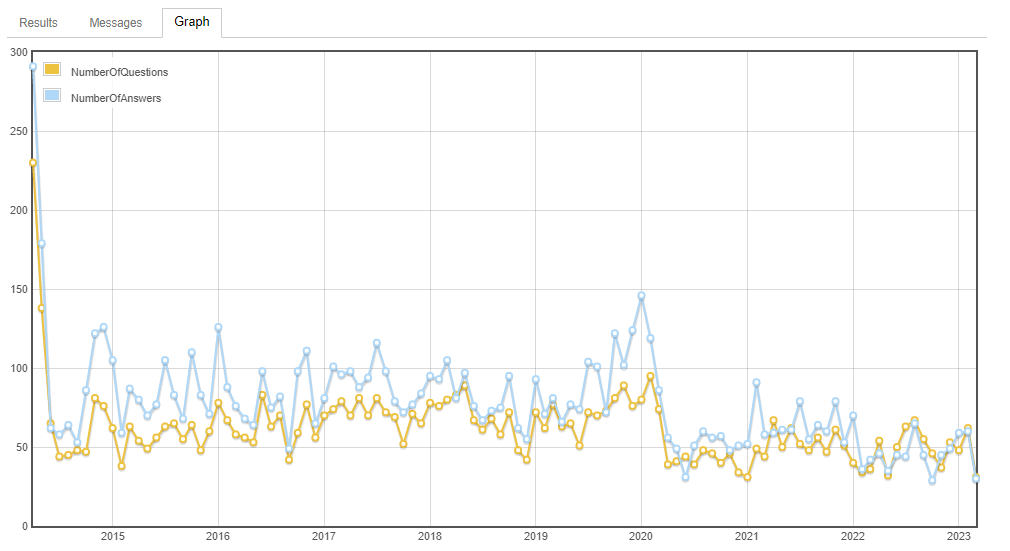I don't know how to do SEDE queries, but I would like to explore some of the Earth Science Stack Exchange data.
Once I needed a query it was done by user rene, but I have many queries to do on Earth Science Stack Exchange.
I asked ChatGPT free version (GPT-3.5) to do a SEDE query for me and it gave errors.
But I have bought ChatGPT plus (GPT-4) and I asked it to do rene's query for questions and answers in Earth Science and it did with a different code, obtaining the same resulting graph:
WITH MonthlyQuestions AS (
SELECT
DATEADD(month, DATEDIFF(month, 0, CreationDate), 0) AS Month,
COUNT(*) AS NumberOfQuestions
FROM
Posts
WHERE
PostTypeId = 1 -- Question
GROUP BY
DATEADD(month, DATEDIFF(month, 0, CreationDate), 0)
),
MonthlyAnswers AS (
SELECT
DATEADD(month, DATEDIFF(month, 0, CreationDate), 0) AS Month,
COUNT(*) AS NumberOfAnswers
FROM
Posts
WHERE
PostTypeId = 2 -- Answer
GROUP BY
DATEADD(month, DATEDIFF(month, 0, CreationDate), 0)
)
SELECT
mq.Month,
mq.NumberOfQuestions,
ma.NumberOfAnswers
FROM
MonthlyQuestions mq
LEFT JOIN
MonthlyAnswers ma ON mq.Month = ma.Month
ORDER BY
mq.Month
Then, can GPT-4 be used to explore Stack Exchange sites data?
Has someone with SEDE knowledge checked it?

